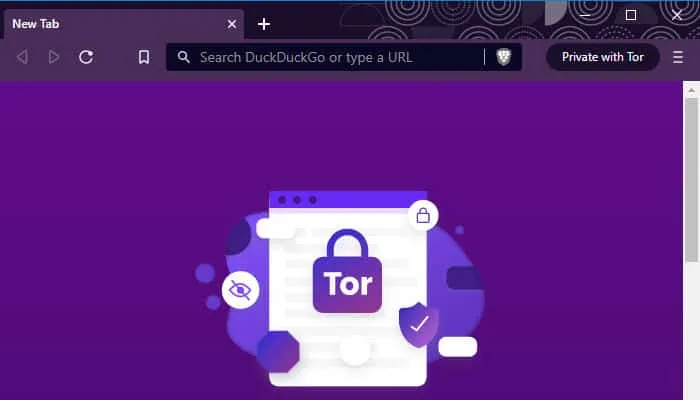
Tor, short for The Onion Router, is software that allows for anonymous communication over the internet. It was originally developed by the United States Naval Research Laboratory and has since become an open-source project maintained by volunteers.
The idea behind Tor is to create a network of relays that a user’s internet traffic can be routed through in order to obscure their IP address and location. This is done by encrypting the traffic at each step in the relay, which makes it difficult for anyone to trace the source of the traffic back to the user.
The name “The Onion Router” refers to the layers of encryption that are applied to the traffic as it passes through the network. Each relay adds a layer of encryption, which can only be decrypted by the next relay in the chain. This creates multiple layers of protection for the user’s traffic, hence the name “onion.”
The Tor network is made up of thousands of relays, which are run by volunteers all over the world. These relays can be either middle relays or exit relays. Middle relays simply pass traffic from one relay to another, while exit relays allow traffic to exit the Tor network and access the regular internet.
One of the benefits of using Tor is that it allows users to access websites and online services that may be blocked or censored in their country. It also provides a level of anonymity that can be beneficial for journalists, activists, and anyone else who needs to communicate online without fear of being tracked or monitored.
However, Tor is not perfect and there are some drawbacks to using it. One of the main issues is that it can be slower than using the regular internet due to the extra layers of encryption and routing that the traffic must go through. Additionally, some websites may block access from Tor exit nodes in order to prevent abuse or illegal activity.
Another concern with Tor is that it can be used for illegal activities, such as accessing illegal content or conducting illegal transactions. While the anonymity provided by Tor can be beneficial in some cases, it can also be used by individuals to hide their criminal activity.
Tor was originally developed for use by the US Navy to protect government communications, but it has since become popular among privacy advocates, journalists, and anyone else who values online anonymity. The Tor network is often used by whistleblowers, activists, and dissidents in countries with strict internet censorship laws to communicate with the outside world.
One of the key features of Tor is that it can be used to access the dark web, a collection of websites and services that are not indexed by traditional search engines and can only be accessed through the Tor network. While the dark web is often associated with illegal activities, such as drug sales and human trafficking, it also contains legitimate resources, such as forums and online marketplaces for privacy-focused tools and services.
Another benefit of using Tor is that it can protect against surveillance by governments, corporations, and other entities that may be monitoring internet traffic. This is particularly important in countries with authoritarian regimes that actively monitor and censor online communication.
Tor has also been used in academic research, particularly in the fields of computer security and cryptography. Researchers have studied the Tor network to better understand its strengths and weaknesses, and have developed new privacy and security tools based on the Tor protocol.
Despite its benefits, Tor is not without controversy. Some governments have attempted to block access to the Tor network, citing concerns over illegal activities and national security. In some cases, Tor users have been targeted by law enforcement agencies for investigation or surveillance.
While Tor provides a high level of anonymity, it is not foolproof. There are still ways that an attacker could potentially trace a user’s activity back to their IP address, such as through a malicious exit node or through social engineering tactics.
In addition to the benefits and concerns mentioned earlier, there are a few other important aspects of Tor worth exploring
One of the key principles behind Tor is the concept of onion routing, which is used to encrypt and route internet traffic through multiple relays. This is done to prevent any single relay from being able to link a user’s traffic back to their IP address or location. Each relay in the chain can only see the IP address of the previous relay and the next relay in the chain, which helps to maintain the user’s anonymity.
Another important aspect of Tor is its community-driven nature. The Tor project is open-source and maintained by a global community of volunteers. Anyone can contribute to the development of the Tor software or run a relay to help support the network. This community-driven approach helps to ensure that Tor remains a decentralized and independent tool for online privacy and security.
Tor has also inspired the development of other privacy and anonymity tools, such as I2P and Freenet. These tools use similar principles of onion routing and distributed networks to protect user privacy and enable anonymous communication.
One of the challenges facing Tor and other privacy tools is the ongoing battle against censorship and surveillance. Governments and corporations have developed sophisticated methods for monitoring and blocking online communication, which can make it difficult for users to access privacy tools like Tor. As a result, the Tor project is constantly working to develop new techniques and technologies to overcome these challenges.
Despite these challenges, Tor remains an important resource for online privacy and security. It provides a way for users to communicate and access online resources without revealing their identity or location. While Tor is not a perfect solution, it is an important tool for those who value online privacy and anonymity. By contributing to the Tor community and using the tool responsibly, users can help to protect their online privacy and support the continued development of this important technology.
Conclusion
Tor is a powerful tool for online privacy and anonymity that has a wide range of applications. While there are some concerns and controversies surrounding its use, it remains an important resource for those who value online privacy and security. As with any tool, it is important to use Tor responsibly and with awareness of its potential risks and limitations.
While there are some drawbacks to using Tor, such as slower internet speeds and the potential for illegal activity, it remains a valuable resource for those who need it.

